Using a slower-performing memory card on a high-end device will worsen your experience due to lower read and write speed. Therefore, you need to know the difference between the two cards before you get a memory card. But you cannot differentiate the specification of the two cards by just looking at them. Besides the word Ultra and Extreme on the front side, you will only see some differences in the writing. This article aims to provide some knowledge about the two SanDisk memory card and some of their core differences.
SanDisk Ultra And SanDisk Extreme
Before we jump into the differences, let us first look at each of its characteristics, pros, and cons. Both SanDisk Ultra and Extreme offer a great read and write speed. However, since Extreme provides a better read/write rate than Ultra, these memory cards are more suitable for devices that need faster speed, such as high-resolution cameras. Now, let us further discuss the two types of SanDisk memory cards.
SanDisk Ultra
On the front-facing side of SanDisk Ultra, you can see several writings like SDXC, C10, and U1. Each writing has a dedicated meaning. SDXC determines the storage capacity, and C10 and U1 are measure of minimum read/write speed. SanDisk offers minimum sequential writing speed of 10MB/s which is a great value. However, while recording video with resolution of 4K or higher, this write speed may not be enough. This may result in the recording device to lag. Therefore, SanDisk is only suitable for devices that records video with resolution of 1080p or lower. Furthermore, Ultra uses bus type of UHS-I which has an overall transfer speed ranging from 50MB/s to 104MB/s. The memory card also offers storage capacity up to 512GB, which is a lot more compared to SanDisk Ultra.
SanDisk Extreme
SanDisk Extreme is much more powerful compared to Ultra. Higher sequential read/write speed makes it more suitable for recording 4K videos. However, there are some similarities between the two cards as well. Similar to SanDisk Ultra, SanDisk Extreme has identical characteristics. Both memory cards offer extended capacity. However, the maximum capacity for Extreme is only 256GB. Besides this, both memory cards have a bus type of UHS-1. Therefore, it offers transfer speed from 50MB/s to 104MB/s SanDisk Extreme offers minimum sequential write speed of 30MB/s. Due to a higher write speed, SanDisk Extreme is a perfect choice especially if you use a device that needs faster data transfer rate.
SanDisk Ultra Vs Extreme: What’s the Difference?
Now that we know the little about SanDisk Ultra and Extreme, let us see what makes these two memory cards so different. Below we have listed some significant differences and similarities between the two cards.
Maximum Read/Write Speed
SanDisk Ultra has a read speed of 120MB/s. However, the write speed on SanDisk Ultra is N/A. As for SanDisk Extreme, it has a maximum read speed of 150MB/s and maximum write speed of 70MB/s
Video Speed Class
Video speed class is another way of measuring minimum sequential transfer rate. SanDisk Ultra has a Video Speed Class of V10. However, the front side of the card will not have any indication. Video speed class is indicated as V30 on SanDisk Extreme. This means the minimum sequential writing speed is 30MB/s.
Applications and Cost
Due to lower write speed, SanDisk Ultra has issues recording 4K videos. Therefore, SanDisk is only preferred for recording videos with a resolution of 1080p or lower. As SanDisk Extreme has higher write speed, these are more suitable for devices that records video with resolution of 4K or higher. However, due to higher write speed, SanDisks Extreme also costs comparatively more than Ultra. Due to this, SanDisk Extreme are usually not preferred for portable gaming consoles. Although higher write speed benefits the device, these consoles can function with lower write speed that SanDisk Ultra offers. Due to the lower cost of SanDisk Ultra, they are more suitable for portable gaming consoles, like Switch, Steam Deck, etc.
UHS speed
UHS (Ultra High Speed) class is another measure to determine the minimum write speed of an SD card. On physical memory card UHS speed class is indicated with the letter U and a number inside it. Ultra has UHS class of U1 and Extreme has U3. U1 means that the minimum writing speed for the SD card is 10MB/s. U3 means minimum writing speed is 30MB/s. Cards with UHS class 3 transfers files comparatively faster compared to U1 cards.
Card Type
Cards with SDXC/SDHC writings refers to the maximum storage capacity. However, the maximum capacity for SanDisk Ultra and Extreme is 512GB and 256GB respectively.
Bus Type
Bus type represents the maximum read and write speed of the SD card. UHS-I supports transfer speed from 50MB/s to 104MB/s. Both Ultra and Extreme uses the same bus type of UHS-I
Final Verdict
If you are using a device where you do not need extreme data transfer rate, say a camera that records 1080p videos, you can use SanDisk Ultra. However, if your device requires faster write speed to function smoothly, we recommend that you get a SanDisk Extreme. This is usually the case where a camera records high resolution video. Talking about gaming console, although you can use Extreme or Ultra on these devices, the price to performance ratio is great on SanDisk Ultra. This makes SanDisk Ultra a perfect choice for portable gaming console.
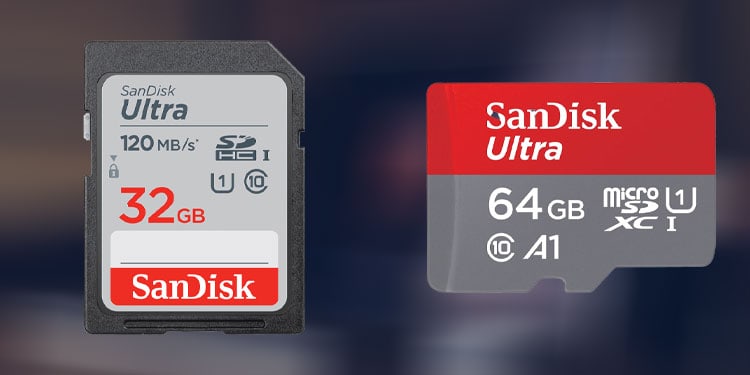
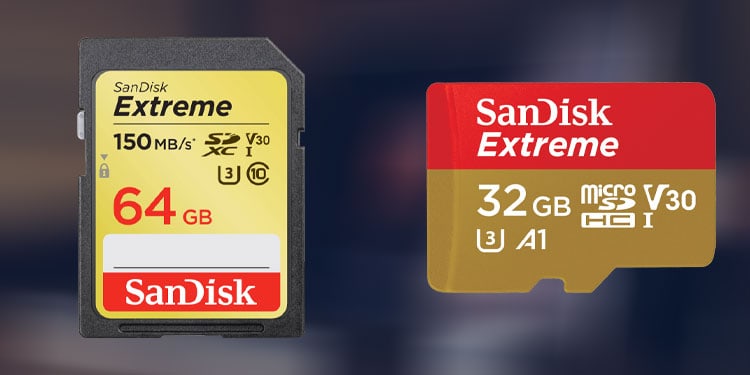
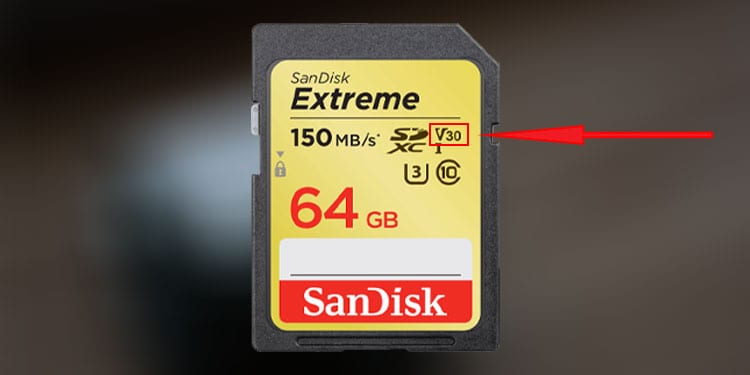
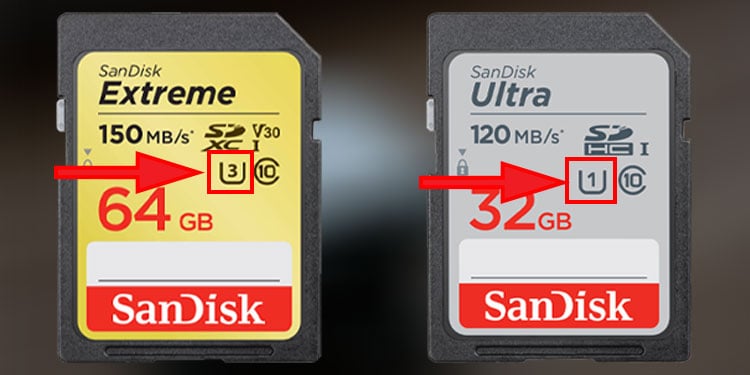
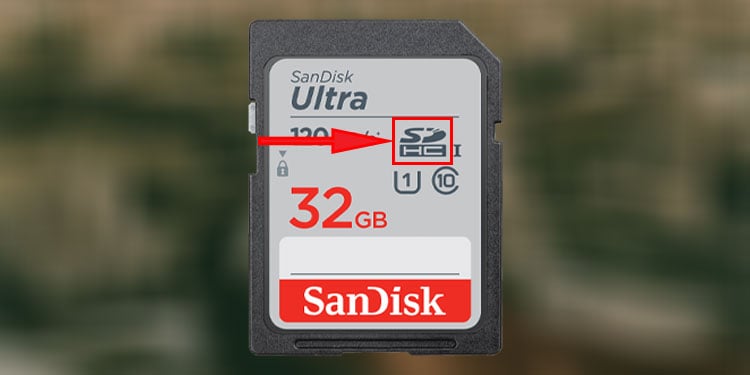
title: “Sandisk Ultra Vs Extreme What S The Difference " ShowToc: true date: “2022-12-15” author: “Jason Moody”
Using a slower-performing memory card on a high-end device will worsen your experience due to lower read and write speed. Therefore, you need to know the difference between the two cards before you get a memory card. But you cannot differentiate the specification of the two cards by just looking at them. Besides the word Ultra and Extreme on the front side, you will only see some differences in the writing. This article aims to provide some knowledge about the two SanDisk memory card and some of their core differences.
SanDisk Ultra And SanDisk Extreme
Before we jump into the differences, let us first look at each of its characteristics, pros, and cons. Both SanDisk Ultra and Extreme offer a great read and write speed. However, since Extreme provides a better read/write rate than Ultra, these memory cards are more suitable for devices that need faster speed, such as high-resolution cameras. Now, let us further discuss the two types of SanDisk memory cards.
SanDisk Ultra
On the front-facing side of SanDisk Ultra, you can see several writings like SDXC, C10, and U1. Each writing has a dedicated meaning. SDXC determines the storage capacity, and C10 and U1 are measure of minimum read/write speed. SanDisk offers minimum sequential writing speed of 10MB/s which is a great value. However, while recording video with resolution of 4K or higher, this write speed may not be enough. This may result in the recording device to lag. Therefore, SanDisk is only suitable for devices that records video with resolution of 1080p or lower. Furthermore, Ultra uses bus type of UHS-I which has an overall transfer speed ranging from 50MB/s to 104MB/s. The memory card also offers storage capacity up to 512GB, which is a lot more compared to SanDisk Ultra.
SanDisk Extreme
SanDisk Extreme is much more powerful compared to Ultra. Higher sequential read/write speed makes it more suitable for recording 4K videos. However, there are some similarities between the two cards as well. Similar to SanDisk Ultra, SanDisk Extreme has identical characteristics. Both memory cards offer extended capacity. However, the maximum capacity for Extreme is only 256GB. Besides this, both memory cards have a bus type of UHS-1. Therefore, it offers transfer speed from 50MB/s to 104MB/s SanDisk Extreme offers minimum sequential write speed of 30MB/s. Due to a higher write speed, SanDisk Extreme is a perfect choice especially if you use a device that needs faster data transfer rate.
SanDisk Ultra Vs Extreme: What’s the Difference?
Now that we know the little about SanDisk Ultra and Extreme, let us see what makes these two memory cards so different. Below we have listed some significant differences and similarities between the two cards.
Maximum Read/Write Speed
SanDisk Ultra has a read speed of 120MB/s. However, the write speed on SanDisk Ultra is N/A. As for SanDisk Extreme, it has a maximum read speed of 150MB/s and maximum write speed of 70MB/s
Video Speed Class
Video speed class is another way of measuring minimum sequential transfer rate. SanDisk Ultra has a Video Speed Class of V10. However, the front side of the card will not have any indication. Video speed class is indicated as V30 on SanDisk Extreme. This means the minimum sequential writing speed is 30MB/s.
Applications and Cost
Due to lower write speed, SanDisk Ultra has issues recording 4K videos. Therefore, SanDisk is only preferred for recording videos with a resolution of 1080p or lower. As SanDisk Extreme has higher write speed, these are more suitable for devices that records video with resolution of 4K or higher. However, due to higher write speed, SanDisks Extreme also costs comparatively more than Ultra. Due to this, SanDisk Extreme are usually not preferred for portable gaming consoles. Although higher write speed benefits the device, these consoles can function with lower write speed that SanDisk Ultra offers. Due to the lower cost of SanDisk Ultra, they are more suitable for portable gaming consoles, like Switch, Steam Deck, etc.
UHS speed
UHS (Ultra High Speed) class is another measure to determine the minimum write speed of an SD card. On physical memory card UHS speed class is indicated with the letter U and a number inside it. Ultra has UHS class of U1 and Extreme has U3. U1 means that the minimum writing speed for the SD card is 10MB/s. U3 means minimum writing speed is 30MB/s. Cards with UHS class 3 transfers files comparatively faster compared to U1 cards.
Card Type
Cards with SDXC/SDHC writings refers to the maximum storage capacity. However, the maximum capacity for SanDisk Ultra and Extreme is 512GB and 256GB respectively.
Bus Type
Bus type represents the maximum read and write speed of the SD card. UHS-I supports transfer speed from 50MB/s to 104MB/s. Both Ultra and Extreme uses the same bus type of UHS-I
Final Verdict
If you are using a device where you do not need extreme data transfer rate, say a camera that records 1080p videos, you can use SanDisk Ultra. However, if your device requires faster write speed to function smoothly, we recommend that you get a SanDisk Extreme. This is usually the case where a camera records high resolution video. Talking about gaming console, although you can use Extreme or Ultra on these devices, the price to performance ratio is great on SanDisk Ultra. This makes SanDisk Ultra a perfect choice for portable gaming console.




